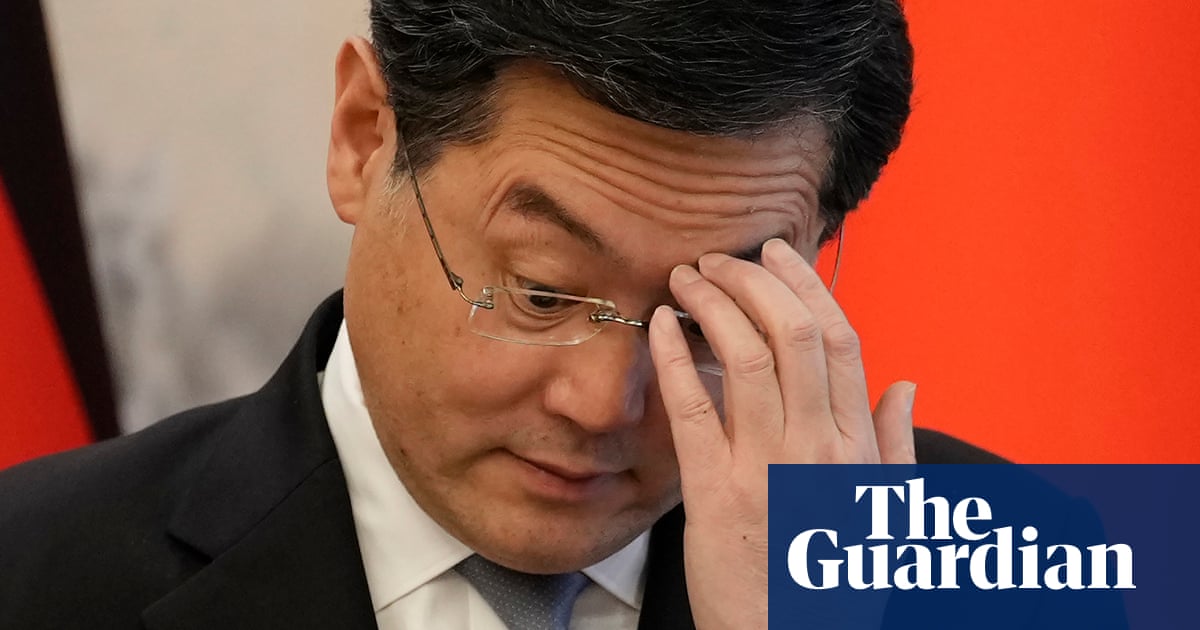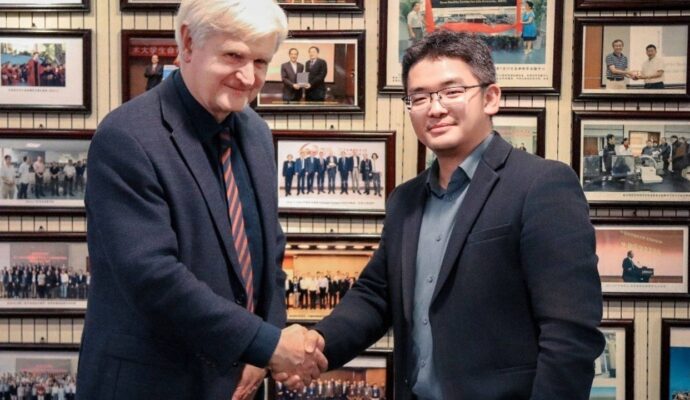
China’s foreign minister, Qin Gang, who has not been seen in public for almost a month, has been removed from office and replaced by his predecessor, Wang Yi, China’s top legislative body said.
A special meeting of China’s senior political body, the Standing Committee of the National People’s Congress (NPCSC), on Tuesday announced Qin had been removed from his pos. It did not specify why.
Wang, who is a more senior party member to Qin and China’s most senior diplomat, was reinstated as a minister in his place, the NPCSC said.
The sudden calling of the NPSCS meeting on Monday, with one day’s notice, had fuelled speculation there may be answers about the disappearance of Qin, who was last seen in public almost a month ago. Authorities have not disclosed where or why he has gone, after early comments that he was absent for health reasons.
The former ambassador to the US was considered a protege of Xi Jinping, having served as the leader’s close aide. Qin experienced a meteoric rise outside the usual norms of Chinese Communist party progression, culminating in being promoted to the post of foreign minster at the expense of more senior cadres in December last year.
Qin will remain on the State Council, China’s top administrative body, but without a specific portfolio. It is not clear what, if any, his role in China’s foreign policy will be in future.
Patricia Thornton, a professor of Chinese politics at the University of Oxford, said the fact Qin remained on the state council suggested there was an ongoing investigation “but sufficient concern to remove him as foreign minister”.
His last public appearance was a meeting with the Sri Lankan foreign minister in Beijing on 25 June. He was not seen during this month’s visit to Beijing by the US treasury secretary, Janet Yellen, or during a subsequent trip to China by the US climate envoy, John Kerry.
In June, Qin held talks lasting more than seven hours with US secretary of state, Antony Blinken, in a trip that was meant to break the ice of frosty US-China relations.
Qin was replaced as the head of the Chinese delegation to the Asean summit in Indonesia this month. At the time, the foreign ministry spokesperson, Wang Wenbin, would say only that Qin was not attending “due to health reasons”. Questions since put to the ministry, about Qin’s wellbeing and whereabouts, went unanswered. Some comments and media references to his disappearance were also censored or removed from Chinese social media, and media outlets including the Hong Kong-based South China Morning Post.
Many observers have grown sceptical of the health reasons offered as explanation for his disappearance – it has been used before to explain absences of senior officials and public figures who have fallen out of favour.
Rumours about the reason behind Qin’s disappearance have included a power struggle with Wang Yi, and an alleged affair with a TV anchor.
The Tuesday evening announcement gave no reasons for Qin’s removal, but had clearly been called in haste. It also formally announced the promotion of Pan Gongsheng from deputy head of the People’s Bank of China to become governor of the central bank.
The Standing Committee is a 175-member body that usually meets every two months and is the de facto top legislative body, except for when the full National People’s Congress sits once a year. This week’s meeting was outside the regular timetable, with the next meeting expected in August.
The meeting agenda had included only two items – a non-urgent amendment to the criminal law and “a decision on official appointments and removal”.
Changhao Wei, a Paul Tsai China Center fellow and an associate research scholar at Yale Law School, said irregular meetings were uncommon but not rare, and in the past they had lasted for as little as a day because there were few items on the agenda.
“What’s extraordinary about today’s session is that it was scheduled only a day earlier. Based on publicly available information, that likely hasn’t happened in at least a decade,” Wei said.
Additional reporting by Amy Hawkins


